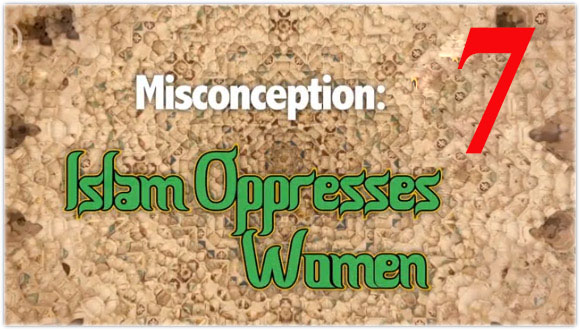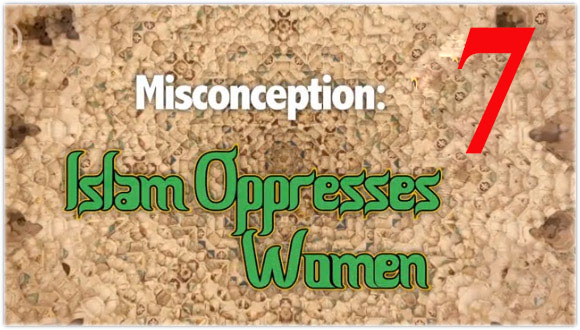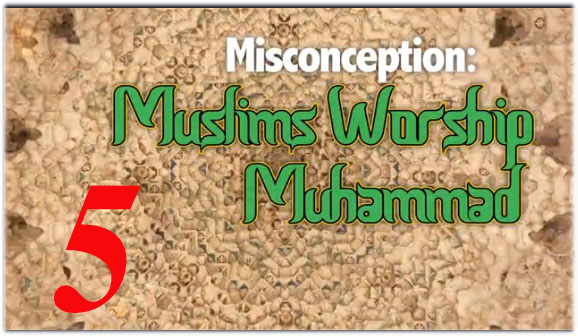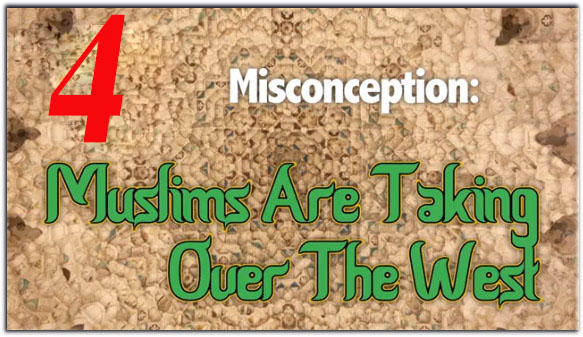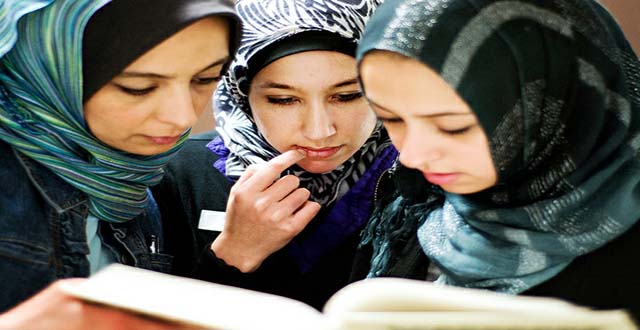Archive for month: November, 2014
7 question and answer about “Islam and Terrorism”
A German Muslim scholar in a live TV program ,which was seen by millions of people:
He was asked on “Islam and Terrorism”
He said:
1. Who started the first world war ? Muslims ?!
2. Who started the Second World War? Muslims ?!
3. who killed 20 million “Indigenous Australians? Muslims ?!
4.who dropped atomic bombs on Hiroshima and Nagasaki ? Muslims ?!
5. Who killed 100 million Indians in North America?
6. Who killed 50 million Indians in South America?
7. Who captivated the 180 million captured Africans as slaves?
88% of them died on the way to America and were dumped into the Atlantic Ocean?
Good! They were not Muslim!
First you have to mean “terrorism” right.
If a non-Muslim does evil, it is called “crime”!
But if a Muslim committed the same act may be, he is a “terrorist”!
7 important Manners of Reciting The Holy Qur’an
By now we know that the Qur’an is a special book and deserves respect. Now let us look at some of the manners of reciting the Qur’an. It is the right of the Tilaawa (recitation of the Qur’an) that we follow the rules when reciting the Qur’an.
1. Perform Wudhoo before you prepare to read the Qur’an. Allah says:
None can touch it (the Qur’an) save the purified ones (56:79).
Once Imam Ja‘far As-Saadiq (a) asked his son Ismaa‘eel to read the Qur’an. The latter said that he was not in Wudhoo. The Imam said in that case he could recite it but should not touch the writings of the Qur’an. Therefore, it is advisable to use a stick or pen to point to the words or sentences of the Qur’an you are reading if you are not in Wudhoo.
2. Read Du‘aa before Tilaawa. Reading of the Du‘aa helps to keep our focus and reminds us of what we need to take from the Holy Book. Ma‘soomeen (a) have recommended a number of Du‘aas. The Du‘aa taught by Imam Ja‘far As-Saadiq (a) appears in this booklet with Qur’an lessons.
3. Always say A‘oodhubillaahi minash shaytaanir rajeem (اَعُوْذُبا اللهِ مِنَ الشَّيْطَانِ الرَّجِيْم) when you begin reading the Qur’an. It means: I seek refuge in Allah from the cursed Shaytaan. This is what Allah instructs us to do in Aayah 16:98.
4. Interact with the Qur’an. Imam Ja‘far As-Saadiq (a) says that it is important to react to the aayaat of the Qur’an when reciting it. When we come across aayaat on Paradise, Mercy and Grace of Allah, Good Outcome in the hereafter, we should hope for these in our hearts. On the other hand if we are reading aayaat that warn us about the punishment, fire, Hell, etc. we should pray to be saved from these.
5. Open your heart and mind to the Qur’an and ponder over what you read. Allah often invites us to think and ponder over the contents of the Qur’an. In 47:24 Allah says:
Do they not then think deeply in the Qur’an, or are their hearts locked up?
6. Be Humble when reciting the Qur’an. The Prophet (S) says that the best recitor is he who is humble when reciting the Qur’an and realizes his own insignificance. Some people exhibit their insignificance and the awe of talking to Allah through weeping. This is a good sign. Prophet Muhammad (S) said: Eyes that weep when reciting the Qur’an will be shining with delight on the Day of Resurrection.
7.Try to understand the recitation. Holy Qur’an is a book of Guidance (2:2). It is necessary for us to understand the message Allah sent all people through Prophet Muhammad (S).
7 Respect and Rights of The Holy Qur’an
Now that we know that the Holy Qur’an is not an ordinary book, but a Divine Book sent by Allah for the guidance of all people, we must show respect to it. Here are some of the points we need to remember.
1. A part of the Qur’an carries the same respect as the entire Qur’an. Allah says:
When the Qur’an is recited, listen to it (7:204).
We know that when recitation takes place it is always of a part of the Qur’an. Even then Allah uses the word Qur’an for the part that is being recited. Therefore, if you have a Siparah, a binder or a booklet that contains Soorahs and passages from the Qur’an, you treat it like a Qur’an.
2. The Qur’an should always be carried with proper care. When your Madrasah bag contains the Qur’an, or a part of it, take extra care of the bag. Keep the bag slowly on the desk or floor instead of letting it fall on its own. Use both hands to remove the Qur’an from your bag, kiss the cover of the Qur’an, place it slowly on a desk (or on a wooden carrier specially built for holding the Qur’an) and open the pages gently.
3. When the Qur’an is being recited, listen to it and be attentive (7:204). If you are busy with something else then at least do not disturb the recitation by talking, for example, or making noise. There is reward for listening to the Qur’an. Imam Ali Zaynul ‘Aabideen (a) said: Whoever listens to a letter of the book of Allah, the Glorious and Almighty, without even reading it, Allah will write down for him one good deed, forgive a sin, and raise him a degree.
It was the practice of unbelievers in Mecca to make a lot of noise so that others could not listen to the Qur’an (41:26). Do not be like them and instead lend your ears to the Qur’an and give it respect. We often wish that God would talk to us. One way to achieve this is by reading the Qur’an. Prophet Muhammad (S): said: Lo! Whoever has longing for Allah should listen to the word of Allah! Also, if you wish to talk to God then do Tilaawa. Prophet Muhammad (S) said: Whenever one of you would like to talk to his Lord, he should read the Qur’an.
4. The Qur’an should be recited regularly. It is disrespect to keep the Holy Qur’an unread. Prophet Muhammad (S) said: Brighten your homes with reciting Qur’an; do not turn them into graves. Surely the house in which a lot of recitation takes place enjoys many blessings and the members benefit from it. Such a household shines for the inhabitants of Heaven as stars shine to the inhabitants of the earth. On the Day of Judgment the Prophet will complain to Allah about some Muslims who had abandoned the Qur’an (25:30).
Another Hadith of the Prophet (S) says: Indeed hearts rust in the same way irons rust. He was asked: “What will polish the hearts?” The Prophet answered: Reading the Qur’an. The more Qur’an we read the better it is. We should discipline ourselves to read a good portion of Qur’an daily. Imam Ali (a) said: He who recites 100 verses daily from the Book in the order it is in, Allah writes for him the reward equal to all the good actions of every one on this earth. Shaytaan would like us not to read, understand and study the Qur’an. Let us fight him with all our strength and faith. Imam Ja‘far As-Saadiq (a) said: There is nothing more unpleasant to Shaytaan than to see a man reading the Qur’an to gain insight.
5. Children should get familiarized with the Qur’an early in their lives. Imam as-Saadiq (AS) said: He who recites Qur’an while he is young, Qur’an mixes with his flesh and his blood, and Allah places him amongst the blessed and the chosen righteous. On the Day of Judgment, Qur’an shall become his defender and [pray for him a handsome reward.]
6. It is the right and respect of the Qur’an that it should be followed. Imam Ja‘far Saadiq (a) said: Lo! One, who learns the Qur’an, teaches it and practices according to it, I will guide and lead him to Paradise.
7. Take the interpretations of the Qur’an from the Holy Prophet (S) and the Imams from his family, i.e. the Ahlul Bayt (a). Imam Hasan al-‘Askaree quoting Prophet Muhammad said: Recite it (i.e. the Qur’an) as Allah gives you ten rewards for each letter that you recite from it. Then the Imam (a) said: Do you know who really holds fast to it and reaches to such honor and reward? He is the person who takes Qur’an and its interpretation from us Ahlul-Bayt (a) or from the deputies that we send to our followers, and takes its (interpretation) neither from the opinions of those who argue (on the speech of Allah) nor form the analogy of those who compare (different parts of the speech of Allah).

